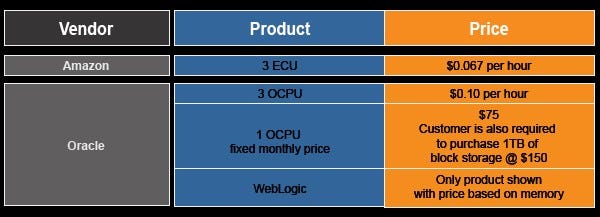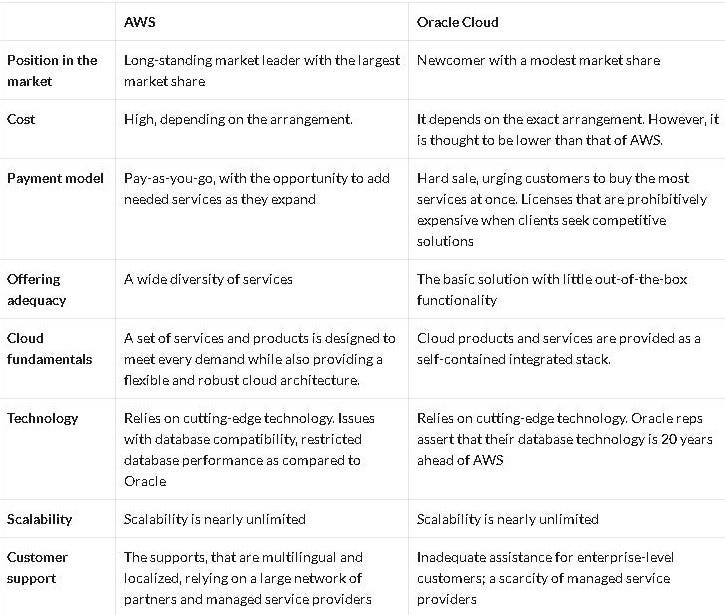
Zero Trust vs. SASE: Everything You Need to Know
Zero Trust vs. SASE: Everything You Need to Know Introduction As the cyber world continues to change, companies need to look beyond conventional security
🔥Premium Monthly Plan – Only $11.99!🔥Hurry! This exclusive deal won’t last long. 👉 Subscribe Now!

Zero Trust vs. SASE: Everything You Need to Know Introduction As the cyber world continues to change, companies need to look beyond conventional security

Cloud Security Posture Management (CSPM) Introduction In the era of digital transformation, organizations are moving to the cloud at an unprecedented pace. While the

How to Strengthen Security Using CIS Controls and Posture Analysis Introduction In the fast-paced and ever-evolving world of cybersecurity, defending digital infrastructure goes far
Table of Contents
The growth of technology, storage, and processing capacity has resulted in the manifestation of cloud computing and its growing appeal in various industries for critical business support operations. The time-consuming and costly purchasing of servers, installations, licenses, and hardware is being replaced by newer, more advanced cloud-based solutions. Furthermore, the emergence of large data cloud computing and cloud data storage has been a significant enabler of cloud computing.
Making the switch to the cloud might be difficult. As a result, the platform you select will be a critical decision with implications for short- and long-term business objectives. With the cloud computing market expanding rapidly, manufacturers such as IBM, Google, Oracle, and Amazon have been catching up quickly.
This article gives you an idea about Oracle Cloud and AWS differences with their pros and cons, and capabilities.
If you are interested in beginning your career in Cloud Computing, IPSpecialist is considered the best place to start your journey. Check out our AWS & Oracle Courses now!
Oracle Cloud Infrastructure is designed for businesses that want their applications to run faster, cost less, and migrate to the cloud more easily. Customers choose Oracle Cloud Infrastructure versus Amazon Web Services for various reasons: They may move and run any workload, including Oracle databases and apps, VMware, and bare metal servers, directly on Oracle Cloud. Customers may quickly integrate security controls and automation to avoid misconfiguration problems and follow security best practices. Oracle’s end-to-end SLAs encompassing performance, availability, and manageability of services reduce risk.
It can be difficult for businesses to estimate the cost of running workloads in the cloud, so Oracle offers predictable pricing to eliminate cost surprises. Its pay-as-you-go pricing tier enables customers to provide services with no upfront commitment and no service period, only paying for the resources used.
Customers can also choose its Universal Credits tier, in which they choose a monthly spending commitment and then consume any cloud service, with a further discount possible by committing to a minimum one-year and $1,000 monthly credit.
Oracle Cloud, like any other solution, has its drawbacks. The following are the most significant downsides of this cloud vendor to be aware of:
AWS is a cloud service company that provides Infrastructure as a Service (IaaS) and Platform as a Service (PaaS) solutions. Amazon’s cloud services include servers, networking, storage, remote computing, email, and security solutions for users. AWS is one of the largest cloud computing companies, hosting well-known websites like Netflix and Instagram.
AWS also provides a pay-as-you-go tier for its more than 160 cloud services. Customers are only obliged to pay for their services without long-term commitments or licensing requirements.
Customers who need a large capacity might save money on services by investing in reserved capacity. AWS also provides volume-based discounts, so savings accumulate as consumption grows.
It even provides a free tier for more than 60 goods for 12 months from the first AWS sign-up date. The AWS pricing calculator on its website will estimate the cost of migrating to the AWS cloud.
The following are the main benefits of AWS


AWS’s payment mechanism enables seamless flexibility to market changes and fluctuations, allowing your company to remain agile and invest in cloud computing at its own pace. Oracle Cloud also gives users the option of leveraging flexibility, depending on how frequently they need to use its services. AWS has a sizable market share and runs many data centers across the globe. Their expertise in delivering cloud services and their exceptional multilingual customer service give them a substantial competitive advantage.
Oracle Cloud and Amazon Web Services (AWS) are the two largest cloud providers. AWS is less expensive than Oracle Cloud. Amazon Web Services (AWS) has a pay-as-you-go fee model that allows clients to choose how many services they want to add as their businesses grow. Users can save money when they reserve services like Amazon EC2 and RDS.
© 2025 All rights reserved | Privacy Policy | Terms and Conditions | Sitemap | Cookie Policy




